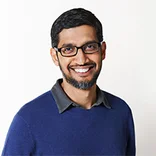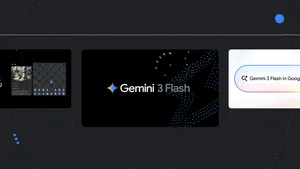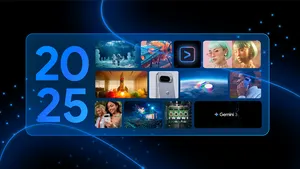How we’re helping get vaccines to more people

The pandemic has taken a devastating toll on communities worldwide. While there is much uncertainty still ahead, the development of multiple safe vaccines in such a short time gives us reason for hope. Now the work begins to ensure that everyone can benefit from this triumph of scientific achievement, and quickly.
During the pandemic, Google has helped people get the information they need to keep their families safe and healthy. We’ve supported small businesses and partnered with Apple to build exposure notification technology to fight the spread of COVID-19 around the world. Now, as public health authorities ramp up vaccination efforts, we’re finding more ways to help.
We recognize that getting vaccines to people is a complex problem to solve, and we’re committed to doing our part. Today we’re announcing that we’re providing more than $150 million to promote vaccine education and equitable distribution and making it easier to find locally relevant information, including when and where to get the vaccine. We’ll also be opening up Google spaces to serve as vaccination sites as needed.
$150 million to promote vaccine education and equitable access
Since the beginning of the pandemic, we’ve helped more than 100 government agencies and global non-governmental organizations run critical public service health announcements through our Ad Grants Crisis Relief program. Today, we’re announcing an additional $100 million in ad grants for the CDC Foundation, the World Health Organization, and nonprofits around the globe. We’ll invest another $50 million in partnership with public health agencies to reach underserved communities with vaccine-related content and information.
Our efforts will focus heavily on equitable access to vaccines. Early data in the U.S. shows that disproportionately affected populations, especially people of color and those in rural communities, aren’t getting access to the vaccine at the same rates as other groups. To help, Google.org has committed $5 million in grants to organizations addressing racial and geographic disparities in COVID-19 vaccinations, including Morehouse School of Medicine’s Satcher Health Leadership Institute and the CDC Foundation.
Highlighting authoritative information and local vaccination sites on Search & Maps
To help find accurate and timely information on vaccines, we’ve expanded our information panels on Search to more than 40 countries and dozens of languages, with more rolling out in the coming week. We’ll begin showing state and regional distribution information on Search so people can easily find when they are eligible to receive a vaccine. Soon we’ll launch a “Get The Facts'' initiative across Google and YouTube to get authoritative information out to the public about vaccines.
Searches for “vaccines near me” have increased 5x since the beginning of the year and we want to make sure we’re providing locally relevant answers. In the coming weeks, COVID-19 vaccination locations will be available in Google Search and Maps, starting with Arizona, Louisiana, Mississippi and Texas, with more states and countries to come. We’ll include details like whether an appointment or referral is required, if access is limited to specific groups, or if it has a drive-through. We’re working with partners like VaccineFinder.org, an initiative of Boston Children's Hospital, and other authoritative sources, such as government agencies and retail pharmacies, to gather vaccination location information and make it available.
Search and Maps will soon show vaccination sites with important details

Opening our spaces for vaccination clinics
To help with vaccination efforts, starting in the United States, we’ll make select Google facilities—such as buildings, parking lots and open spaces—available as needed. These sites will be open to anyone eligible for the vaccine based on state and local guidelines. We’ll start by partnering with health care provider One Medical and public health authorities to open sites in Los Angeles and the San Francisco Bay Area in California; Kirkland, Washington; and New York City, with plans to expand nationally. We’re working with local officials to determine when sites can open based on local vaccine availability.
Using our technology to improve vaccine distribution
Google Cloud is helping healthcare organizations, retail pharmacies, logistics companies, and public sector institutions make use of innovative technologies to speed up delivery of vaccines. For example, logistics companies are using our AI to optimize trucking operations by adapting to traffic or inclement weather, and detect temperature fluctuations during transport. Once vaccines reach their destination, our tools help facilitate pre-screening, scheduling, and follow up. And our Intelligent Vaccine Impact Platform is helping states like New York and North Carolina manage distribution and forecast where vaccines, personal protective equipment, and hospital staffing will be most needed.
The COVID-19 pandemic has deeply affected every community all over the world. It’s also inspired coordination between public and private sectors, and across international borders, on a remarkable scale. We can’t slow down now. Getting vaccines to billions of people won’t be easy, but it’s one of the most important problems we’ll solve in our lifetimes. Google will continue to support in whatever way we can.








